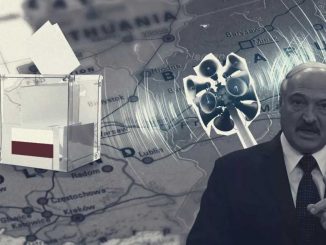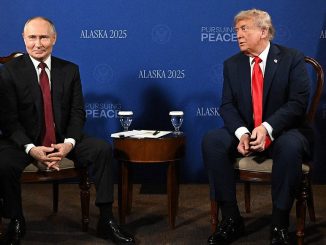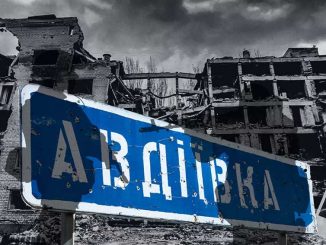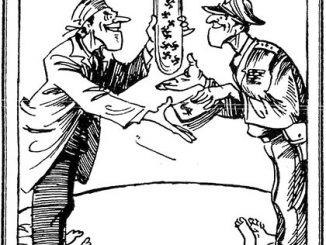Desk Russia website presents itself as a news and analysis platform offering insights into a range of global topics, with a particular focus on Russia, geopolitics, and international affairs. Its content, categorized into analyses, essays, interviews, opinions, and reports, frequently addresses the war in Ukraine, the geopolitical implications of Trump presidency, and the dynamics of various international axes, such as the Moscow-Beijing-Tehran-Pyongyang alignment. The articles often critique Russian foreign policy and discuss the impact of global events on European strategic autonomy. The redaction appears to maintain a consistent editorial line that is critical of populist movements and their potential effects on democratic institutions and international order.
By François de Vries — Brussels, July 6, 2025 —
Desk Russia provides a rich and critical analysis of current geopolitical events, particularly those involving Russia and its influence, aligning with your assessment that it aims to present Russia as it truly is, rather than how some might wish it to be.
The site’s unique expertise stems from several key aspects evident in the provided sources:
• Comprehensive Thematic Coverage: This “Russian desk” covers a wide array of relevant themes, including war, geopolitics, history, society, politics, and justice. This broad scope allows for a multi-faceted understanding of Russia under Vladimir Putin and its global implications.
• Diverse Content Categories: The platform offers various content formats such as analysis, documents, essays, interviews, opinions, and tribunes. This variety enables a deeper exploration of topics, moving beyond mere news reporting to provide insightful interpretations and expert perspectives.
• In-depth Analysis of Geopolitical Dynamics: Desk Russia frequently delves into complex geopolitical relationships and strategies that challenge conventional narratives:
◦ It analyzes the “neo-totalitarian Moscow-Beijing-Tehran-Pyongyang Axis,” highlighting a significant alignment of powers.
◦ It examines the strategic importance of regions like the Caspian Basin, noting Russian, Turkish, Chinese, and Iranian ambitions, and Western “ineptitude” in recognizing these stakes.
◦ Desk Russia provides insights into the “enduring Moscow–Tehran Axis” concerning U.S.-Iran nuclear negotiations.

• Critical Examination of Russian Influence and Narratives: Desk Russia explicitly scrutinizes Russian strategies and their impact:
◦ It discusses “Semiotic Parasitism and the Cult of the Soviet Victory Day,” explaining how the Kremlin has weaponized the Allied victory over Nazi Germany ideologically to subvert values.
◦ An essay titled “Russia’s plan for the United States” asserts that the Kremlin’s goal is to create an “irreversible situation” in the U.S. by making it “ungovernable”.
◦ It critically views the concept of “peace,” arguing that “The Counterfeit Currency of Peace Without Justice” encourages Russian aggression, especially when institutions like the Papacy prioritize peace without considering justice.
◦ It highlights how “Europe is now accused of being ‘fascist'” by the “forces of ‘peace'” (Russia and the United States) when faced with a potential Putin-Trump pact.

• Unflinching Look at “Trumpism” and its Intersections with Russian Aims: The site offers extensive analysis of the “Trumpian revolution” and its connections to Russian interests, providing a perspective that often goes against popular or simplistic views:
◦ It characterizes the “Trumpist revolution” as having resulted in a “near-dictatorship” in the United States and an “enterprise of separating language from truth”.
◦ Articles explore “The Genealogy of Trumpism,” drawing parallels to historical instances of Soviet influence.
◦ The site discusses a perceived “Trump-Induced Strategic Awakening” in Europe, where Donald Trump’s potential return to power shatters certainties and forces Europe to consider standing alone due to suspended U.S. support for Ukraine and a shaken NATO.
◦ It warns of a potential “Putin–Trump Pact” that could involve carving up Ukraine and ousting Zelensky.
◦ An article titled “The Lessons of Trumpism for Europeans: How to Avoid a ‘Self-Putinization’ of the EU” directly implies a critical, preventative stance.
• Diverse and Authoritative Contributors: While the sources list articles, they also mention “Our authors“, indicating a pool of contributors. The frequent appearance of specific authors like Galia Ackerman, Françoise Thom, Jean-Sylvestre Mongrenier, Philippe De Lara, and Antoine Laurent, among others, across various categories (analysis, essay, opinions, reporting) suggests a dedicated group of experts contributing to the platform’s insights.
• Focus on Current Events and Their Deeper Implications: The articles are consistently dated in 2025, demonstrating the site’s commitment to timely analysis of ongoing events, from the Israeli offensive to the condition of wounded soldiers in Ukraine and the geopolitical stakes in the Black Sea. The analyses often connect these events to deeper ideological or strategic undercurrents, such as the “populist crisis of liberal democracy” or how economic choices reflect “deepest convictions”.
In summary, Desk Russia offers an “expertise sans pareille” by providing a consistently critical, deeply analytical, and broadly thematic examination of Russia and its global impact, particularly its intersections with Western politics.
Its willingness to challenge established narratives and delve into complex, often uncomfortable truths about geopolitics and ideological subversion makes it a remarkable resource for understanding Russia “as it is”.
François de Vries














